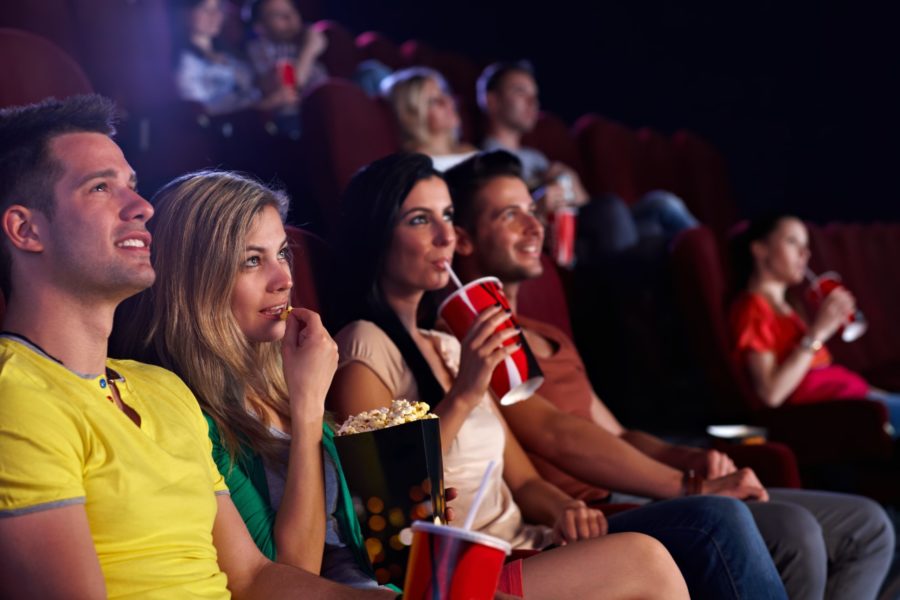On October 13, the biggest music event of the year was released to the public: the Taylor Swift Eras Tour movie. In just over three weeks, the movie has grossed over 200 million dollars, one of twenty movies this year to pass that revenue and the only concert documentary to ever reach this level of box office domination. The theaters of screaming fans can attest to the power this movie held across America.
This was, of course, not anywhere near the first time a band or musician has documented themselves on tour or performing, but it certainly is the most lucrative. In fact, this month, a concert documentary film made by The Talking Heads is being re-released in theaters in honor of its 40th anniversary. The Talking Heads, a band formed in 1975, released this film in 1984. It was titled Stop Making Sense, and is widely considered the best concert film ever made. It captured the essence of the band on screen- the way any type of concert documentary should.
However, not all music documentary endeavors have been as successful as the aforementioned. One of the world’s biggest bands, the Rolling Stones, attempted to recreate Woodstock and document it– and failed worse than anyone could fathom. December 6, 1969, is often regarded as the end of the swinging sixties. The Altamont free concert was literally fatal- multiple people died here. And they filmed it. Needless to say, this particular concert film did not achieve its goal of immortalizing the hippie movement– it finished it.
But the overall joy of documenting music was a part of all of these projects. Whether as a fun way to bring an extremely overpriced concert to a committed fanbase, or as a snapshot of a band’s power, their ultimate goal was to capture the feeling this music gives, and transport it all around the world. Live music feels unique. It’s hard to replace being in an energy-filled venue with amazing artists on stage with anything. Concerts are also a main source of revenue for artists- between merch, ticket sales, and more, musicians can make a fair amount of money off of a successful tour. Live musical performances also create a stronger fan relationship with an artist.
But, filmed concerts are what people want. The idea of being able to experience those same feelings that live music brings from the comfort of a movie theater or your own couch is extremely appealing to a lot of people. The convenience, affordability, and fun that filmed concert experiences provide are highly valuable in the present day. But does this surge in filmed concerts in recent years (from Taylor Swift’s Reputation, Beyoncé’s Homecoming, and more) endanger live music? When it comes to tours performed by major artists, will people go see it if they know a recorded version will be available soon?
While a concert is enjoyable both in person and on film, live music is irreplaceable. Having gone to the Eras Tour movie, I can confirm that the live concert was probably a better experience. But the movie was still totally unforgettable and achieved its goal: to bring the joy and community of a fanbase together to enjoy music. Filmed concerts allow people who couldn’t make it to the tour for whatever reason to participate in a wonderful experience. This filming of concerts will not ultimately endanger live music, but instead spread its importance to future generations. As it has been in the past, and now, and in the future, music is a community maker, and any way that community can be brought together is enabling that to be taken further.

